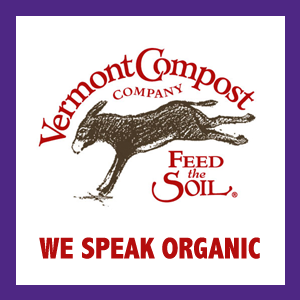On one of my first farm jobs, at Wisconsin’s Harmony Valley Farm, I watched farmer Richard de Wilde come in from the end of a day of cultivating on the tractor and spend another five or ten minutes cleaning any accumulated soil from the knives and sweeps with a paint scraper and a wire brush. The job simply wasn’t done until the cultivators were ready for another round.
This wasn’t just something that happened on a prized piece of equipment. At the end of each day, every tractor was put away in its assigned parking space. Delicate equipment like seeders and transplanters was shedded, and other implements put away neatly along machinery row. At the end of every day, the packing shed floor was swept and hosed down, and the tanks cleaned and sanitized; and on Saturdays, while everybody else was off at farmers market, I was directed to clean and sanitize the packing shed from top to bottom.
At Harmony Valley Farm, we were practicing a classic productivity technique known as “clearing to neutral.” Rather than reaching the finish line exhausted and dropping everything where we finished the work, we completed the job and then brought everything up to the point where it was ready for the next time we needed it.
Having reached the end of the season – across the Midwest, farmers have just gotten rained out of the field at long last – now is a great time to clear your farm to neutral and to set the stage for the busy, urgent world of spring.
Too often, I’ve been a part of farming operations (including my own!) that reached spring in a state of sheer panic: cultivator parts were dirty, rusty and dull; the flame weeder hadn’t been serviced; and we still needed to figure out how to fix the muffler belt on the Farmall. In the spring, everything comes hot and heavy and all at once, with a ton of pressure to get things done. It’s harder to make good decisions in that context, and even more difficult to successfully manage unexpected hurdles (wait – you mean there isn’t a muffler belt on the Farmall?). Moving as many tasks from spring to fall as you possibly can sets the stage for a cleaner, smoother start in the spring.
In the transplant house, now is a great time to drain water systems and hoses to prevent freezing over the winter. Draining the hoses reduces the build-up of slimes and other undesirable stuff, and ensures that the day you turn the furnace on, you can run water through your hoses. Remove any fittings from frost-free hydrants so that you can be assured that they will drain properly.
Clean and sanitize transplant production flats to reduce the likelihood of carrying over diseases. It’s important to remove any soil before sanitizing, because clay and organic matter typically inactivate sanitizers. Sanidate and Oxidate are two relatively benign sanitizers that have been approved for organic production and are approved for hard-surface sanitizing (always check the label, and check with your certifier!).
Test greenhouse furnaces or boilers now, and schedule any maintenance to happen in the next month, rather than discovering problems the week you are trying to get things fired up for production.
Clean the fan blades on the circulating fans and the furnace to increase efficiency.
In the packing house, drain the hoses when you’re done with them for the year. Give every surface a good scrubbing down and sanitizing, including equipment, walls, and ceilings in the packing area and in the coolers, and get everything as dry as possible to prevent the growth or harborage of bacteria.
Pull stored pallets away from the walls to make that space less inviting to rodents – most sources recommend a foot as being enough to allow you to observe any activity, as well as to reduce the desirability to the undesirables.
Take the covers off of the evaporator fans and clean and sanitize the fan blades – you’ll be shocked at how gross these can get over the course of a year. Cleaning them will increase efficiency and reduce the likelihood of spreading rots or diseases.
In the shop, and in the equipment yard, take a look at each tractor and implement to remind yourself of any repairs or improvements that need to be done, and organize this into a list that you can check off as you go through the winter.
For the implements that don’t need repairs, dig in on the maintenance. Change the oil, grease the Zerks, and tighten the bolts. Remove any soil from scouring surfaces with a wire brush or a brush attachment on an angle grinder. Sharpen the edges on your cultivating tools. Wipe scouring surfaces with a bit of oil or grease once you’ve got them cleaned up to prevent rusting over the winter.
(I spent too many years without an angle grinder. What a great tool for maintenance and cleaning. Relative to a bench grinder, the angle grinder makes it much easier to get the work done. After too many years of unmounting cultivator knives and trying to get the angle to work right with the grinder on my workbench, I finally treated myself to a cheap angle grinder; a few years later, I got a really good one and I would definitely recommend buying a nice one right from the outset.)
(Also – don’t forget to wear eye protection and, preferably, ear protection while you’re using a grinder. Dirt and sparks fly everywhere, and I’d really like you to be able to see next year.)
Clean and sharpen hand tools with the angle grinder or a wire brush and a file. Rub the handles with linseed oil, and coat the blades with oil or grease to prevent rusting; you can wipe this off again in the spring.
Pull the gaskets from any irrigation equipment so that they don’t dry out over the winter in the cold and low humidity.
In addition to preparation for next spring, get ready for winter. It will happen. Put the blade or the snowblower on the tractor after you are finished with field work. Find the snow shovels. Lay in a supply of salt for paths and stairs.
In the office, prepare to put together end of the year financial statements by inventorying any assets that won’t change between now and the end of the year.
Review accounts receivable so that you can clean those up with customers before too much time goes past. Review payables so that you can get those cleaned up by the end of the year, which will help with taxes and with your bookkeeping.
Getting the work out of the way now will reduce stress and increase effectiveness when spring comes around. And who wouldn’t like that? What else can you do now so that when the snow melts and the fields dry out, you are ready to grease a couple of Zerks and make the most of it?
This wasn’t just something that happened on a prized piece of equipment. At the end of each day, every tractor was put away in its assigned parking space. Delicate equipment like seeders and transplanters was shedded, and other implements put away neatly along machinery row. At the end of every day, the packing shed floor was swept and hosed down, and the tanks cleaned and sanitized; and on Saturdays, while everybody else was off at farmers market, I was directed to clean and sanitize the packing shed from top to bottom.
At Harmony Valley Farm, we were practicing a classic productivity technique known as “clearing to neutral.” Rather than reaching the finish line exhausted and dropping everything where we finished the work, we completed the job and then brought everything up to the point where it was ready for the next time we needed it.
Having reached the end of the season – across the Midwest, farmers have just gotten rained out of the field at long last – now is a great time to clear your farm to neutral and to set the stage for the busy, urgent world of spring.
Too often, I’ve been a part of farming operations (including my own!) that reached spring in a state of sheer panic: cultivator parts were dirty, rusty and dull; the flame weeder hadn’t been serviced; and we still needed to figure out how to fix the muffler belt on the Farmall. In the spring, everything comes hot and heavy and all at once, with a ton of pressure to get things done. It’s harder to make good decisions in that context, and even more difficult to successfully manage unexpected hurdles (wait – you mean there isn’t a muffler belt on the Farmall?). Moving as many tasks from spring to fall as you possibly can sets the stage for a cleaner, smoother start in the spring.
In the transplant house, now is a great time to drain water systems and hoses to prevent freezing over the winter. Draining the hoses reduces the build-up of slimes and other undesirable stuff, and ensures that the day you turn the furnace on, you can run water through your hoses. Remove any fittings from frost-free hydrants so that you can be assured that they will drain properly.
Clean and sanitize transplant production flats to reduce the likelihood of carrying over diseases. It’s important to remove any soil before sanitizing, because clay and organic matter typically inactivate sanitizers. Sanidate and Oxidate are two relatively benign sanitizers that have been approved for organic production and are approved for hard-surface sanitizing (always check the label, and check with your certifier!).
Test greenhouse furnaces or boilers now, and schedule any maintenance to happen in the next month, rather than discovering problems the week you are trying to get things fired up for production.
Clean the fan blades on the circulating fans and the furnace to increase efficiency.
In the packing house, drain the hoses when you’re done with them for the year. Give every surface a good scrubbing down and sanitizing, including equipment, walls, and ceilings in the packing area and in the coolers, and get everything as dry as possible to prevent the growth or harborage of bacteria.
Pull stored pallets away from the walls to make that space less inviting to rodents – most sources recommend a foot as being enough to allow you to observe any activity, as well as to reduce the desirability to the undesirables.
Take the covers off of the evaporator fans and clean and sanitize the fan blades – you’ll be shocked at how gross these can get over the course of a year. Cleaning them will increase efficiency and reduce the likelihood of spreading rots or diseases.
In the shop, and in the equipment yard, take a look at each tractor and implement to remind yourself of any repairs or improvements that need to be done, and organize this into a list that you can check off as you go through the winter.
For the implements that don’t need repairs, dig in on the maintenance. Change the oil, grease the Zerks, and tighten the bolts. Remove any soil from scouring surfaces with a wire brush or a brush attachment on an angle grinder. Sharpen the edges on your cultivating tools. Wipe scouring surfaces with a bit of oil or grease once you’ve got them cleaned up to prevent rusting over the winter.
(I spent too many years without an angle grinder. What a great tool for maintenance and cleaning. Relative to a bench grinder, the angle grinder makes it much easier to get the work done. After too many years of unmounting cultivator knives and trying to get the angle to work right with the grinder on my workbench, I finally treated myself to a cheap angle grinder; a few years later, I got a really good one and I would definitely recommend buying a nice one right from the outset.)
(Also – don’t forget to wear eye protection and, preferably, ear protection while you’re using a grinder. Dirt and sparks fly everywhere, and I’d really like you to be able to see next year.)
Clean and sharpen hand tools with the angle grinder or a wire brush and a file. Rub the handles with linseed oil, and coat the blades with oil or grease to prevent rusting; you can wipe this off again in the spring.
Pull the gaskets from any irrigation equipment so that they don’t dry out over the winter in the cold and low humidity.
In addition to preparation for next spring, get ready for winter. It will happen. Put the blade or the snowblower on the tractor after you are finished with field work. Find the snow shovels. Lay in a supply of salt for paths and stairs.
In the office, prepare to put together end of the year financial statements by inventorying any assets that won’t change between now and the end of the year.
Review accounts receivable so that you can clean those up with customers before too much time goes past. Review payables so that you can get those cleaned up by the end of the year, which will help with taxes and with your bookkeeping.
Getting the work out of the way now will reduce stress and increase effectiveness when spring comes around. And who wouldn’t like that? What else can you do now so that when the snow melts and the fields dry out, you are ready to grease a couple of Zerks and make the most of it?




 RSS Feed
RSS Feed
